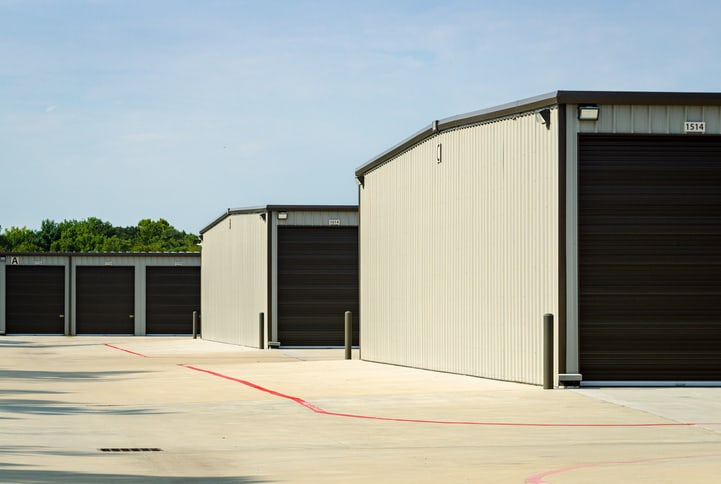Do You Need a Self-Storage Feasibility Study?

If you’re pondering the construction or purchase of a self-storage facility, you may also want to ponder the need for a storage feasibility study.
A feasibility study can give you keen insights that either encourage you to pursue a project or deter you from pursuing it. Either way, it can be money well spent.
“From building the unit sizes your customers want, knowing your competitive strengths and weaknesses, projecting expenses and net operating income, self-storage feasibility studies take the guesswork out of your project,” the Self Storage Association says.
What is a storage feasibility study?
A feasibility study contains research that helps determine whether your self-storage business idea is feasible or not. You probably can undertake this study on your own, but enlisting help from a self-storage consultant would be wise.
This study should help you decide whether your self-storage facility will produce enough revenue to generate a profit after taking care of debt and operating expenses.
Overall, this study will enable you to figure out who the customers within a one- to five-mile radius of the facility will be. Typically, a market for a self-storage facility encompasses a three- to five-mile radius, so your demand analysis should focus on this area.
Elements of a storage feasibility study normally include business and demographic information such as:
- Current population. Of course, the market area in an urban or suburban area will be larger than in a rural area. Generally, you’d want to see roughly 20,000 residents in a rural market and at least 100,000 in an urban market.
- Population projections. Ideally, your facility should be located in an area whose population is growing, not shrinking.
- Median income in the market area. Self-storage renters usually fall into the middle-income and upper-middle-income brackets.
- Median age in the market area. Self-storage tenants typically are in their early 20s to mid-50s.
- Daily vehicle traffic. Most storage facilities rely on drive-by traffic to draw some of their customers.
- Competition. Which self-storage facilities are located near the facility you’re considering? What are their occupancy rates? Are any nearby facilities being built or on the drawing board?
- Overview of the self-storage industry.
- Long-term pro forma projections for rental rates, income, expenses and property value.
- Information about zoning that’s in place at the site.
The length of a demand study can easily exceed 100 pages.
How to Create a Self-Storage Business Plan [Plus a Free Template!]
Why do you need a storage feasibility study?
To make a smart business decision, you should be equipped with market intelligence that points you in the right direction — either proceeding with a self-storage project or looking for an opportunity elsewhere. While you’ll pay for a study in terms of the time or money spent, this relatively small investment might wind up saving you even more money in the long run.
A feasibility study should ultimately inform you as to whether or not the long-term profits will outweigh the land costs, development costs, construction costs, and operating costs. A feasibility study may offer a variety of scenarios, featuring different unit mixes, pricing strategies, or the implementation of climate control or automation technology. A good self-storage market study/analysis should offer you a clear-eyed view of the risks and the rewards of pursuing your project.
Not only is a feasibility study valuable in the decision-making process, but a lender may require a study before extending a construction or purchase loan to you.
Considering building a boat or RV storage facility? You’ll want a boat and RV storage feasibility study as well! Such facilities have their own nuances and unique demand drivers, so be sure to choose a consultant with expertise in developing RV and boat storage projects.
How to choose a self-storage consultant
If you choose to go ahead with a storage feasibility study, you likely will want to hire a storage consultant to do it. Chances are, they’ve got far more self-storage expertise than you do.
When selecting a storage consultant, you should:
- Search online for reviews or other information about a consultant you’re considering.
- Seek referrals from professionals you may know in the self-storage industry, such as brokers or contractors.
- Ask for an example of a feasibility study the consultant has completed for other clients.
- Find out whether a consultant is familiar with the geographic area where you’re looking at building or buying a facility.
- Chat with a few of a consultant’s clients.
- Nail down how much the study will cost. The price tag often will be $5,000 or more.
Related Resources:

How to Start a Self-Storage Business
Launching a self-storage business for the first time? Start here and learn everything you need to know before you buy or build. Keep Reading

How Much Does it Cost to Build a Self-Storage Facility?
When you’re looking to develop a self-storage facility, you obviously must decide where to build it. Be prepared, finding a great site for storage can be tricky. Keep Reading

Building a Fortress: A Guide to Self-Storage Security
Need a little inspiration for advertising your self-storage facility? Check out these three examples to get your creative juices flowing. Keep Reading